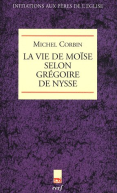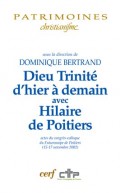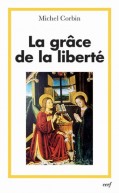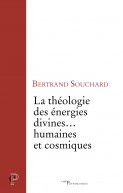
Les propos sur la contrition de Jean Chrysostome
Collection Patrimoines - Christianisme
464 pages - janv. 2010
52,80€
Les « Propos sur la contrition » de Jean Chrysostome, comme la plupart de ses écrits de jeunesse, ont été jusqu'ici au mieux négligés, au pire lus avec antipathie. Cette prévention contre ces deux opuscules, adressés à des moines alors que Jean lui-même devenait diacre, repose sur une erreur souvent répétée. Après son ordination sacerdotale, Jean aurait adouci ses exigences chrétiennes pour se mettre à la portée de sa communauté. Or, la lecture attentive des « Propos » montre qu'ils constituent un prélude à sa prédication : la plupart des questions abordées, comme les images employées, sont en fait récurrentes dans ses homélies et même dans sa correspondance d'exil. Apparaissent ainsi la profonde unité de sa spiritualité et son affirmation d'une seule perfection chrétienne, incarnée dans des états de vie différents. On trouvera dans ce volume non seulement la traduction de nombreux passages de ses homélies qui montrent la continuité de la pensée chrysostomienne, mais également des rapprochements entre la spiritualité des « Propos sur la contrition » et diverses expressions du christianisme, en Orient aussi bien qu'en Occident, dont les représentants se réfèrent souvent à ces textes sous-estimés. Ainsi les « Propos » connaissent-ils une double série de prolongements : dans l'œuvre de leur auteur, dans des courants spirituels du Moyen Age et de l'époque moderne.
--
John Chrysostom’s ‘Propos sur la contrition’, like most of his early writings, has been until now at best neglected, at worse read with aversion. This prejudice against the two works, which were intended for monks at a time when John himself became deacon, is due to a common misunderstanding. After his ordination, Jean would appear to have moderated his Christian exigency to make himself more accessible to his community. But an attentive reading of the ‘Propos’ shows that these works constitute a prelude to his preaching: most of the questions treated and the images employed are in fact recurrent in his homilies and even in his correspondence when in exile. So emerges the deep unity of his spirituality and his affirmation of a unique Christian perfection, incarnate in different states of life. In this volume, readers will find not only the translation of many passages of his homilies, which reveal the continuity of his thinking, but also comparisons between the spirituality of the ‘Propos sur la contrition’ and diverse expressions of Christianity, both in the East and the West, whose representatives often consult these underestimated texts. So the ‘Propos’ has been doubly prolonged: in the author’s work, in the medieval spiritual currents of thought and in modern times.
--
John Chrysostom’s ‘Propos sur la contrition’, like most of his early writings, has been until now at best neglected, at worse read with aversion. This prejudice against the two works, which were intended for monks at a time when John himself became deacon, is due to a common misunderstanding. After his ordination, Jean would appear to have moderated his Christian exigency to make himself more accessible to his community. But an attentive reading of the ‘Propos’ shows that these works constitute a prelude to his preaching: most of the questions treated and the images employed are in fact recurrent in his homilies and even in his correspondence when in exile. So emerges the deep unity of his spirituality and his affirmation of a unique Christian perfection, incarnate in different states of life. In this volume, readers will find not only the translation of many passages of his homilies, which reveal the continuity of his thinking, but also comparisons between the spirituality of the ‘Propos sur la contrition’ and diverse expressions of Christianity, both in the East and the West, whose representatives often consult these underestimated texts. So the ‘Propos’ has been doubly prolonged: in the author’s work, in the medieval spiritual currents of thought and in modern times.
- Dimensions : 145x235x30
- ISBN : 9782204089715
- Poids : 670 grammes
DU MÊME AUTEUR
> VOIR TOUS LES LIVRES DE l'AUTEUR
DANS LA CATÉGORIE THÈMES CONTEMPORAINS
Le Fils de Dieu pour les judéo-chrétiens dans « Le Pasteur » d'Hermas
de Franciszek Szulc
288 pages - déc. 2011
Dieu Trinité d'hier à demain avec Hilaire de Poitiers
560 pages - avril 2010
La théologie des énergies divines... humaines et cosmiques
de Bertrand Souchard
264 pages - oct. 2017







